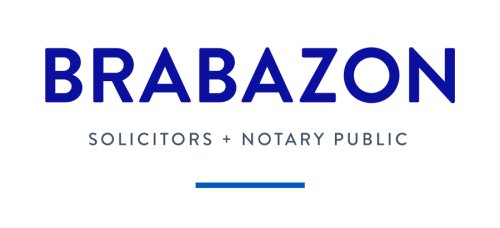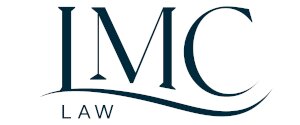Best Trusts Lawyers in Dublin
Share your needs with us, get contacted by law firms.
Free. Takes 2 min.
List of the best lawyers in Dublin, Ireland
About Trusts Law in Dublin, Ireland
Trusts Law in Dublin, Ireland, covers the legal framework governing the creation and management of trusts. A trust is a fiduciary relationship in which a trustee holds or manages assets for the benefit of beneficiaries as per the terms specified by the settlor. Trusts are commonly used for estate planning, asset protection, and charitable purposes. The laws governing trusts in Ireland can be complex, and understanding them is crucial to effectively managing or benefiting from a trust.
Why You May Need a Lawyer
There are several situations where you may require legal assistance in trusts. Some of the most common include:
- Establishing a Trust: Creating a trust involves drafting legal documents that comply with Irish law. A lawyer can help ensure all legal requirements are met.
- Trust Administration: Trustees have numerous responsibilities, including asset management and compliance with legal obligations. Legal advice can help avoid mistakes.
- Disputes: Conflicts may arise between trustees and beneficiaries or among beneficiaries. Legal representation can help resolve these disputes.
- Tax Implications: Trusts can have significant tax consequences. A lawyer can provide guidance on minimizing tax liabilities.
- Modification or Termination: Making changes to a trust or dissolving it can be legally complex. Expertise is often required to navigate these processes.
Local Laws Overview
Several key aspects of local laws are particularly relevant to trusts in Dublin, Ireland:
- Trustee Act 1893: This act provides the basic regulatory framework for the administration of trusts in Ireland.
- Capital Acquisitions Tax (CAT): Beneficiaries may be subject to CAT on inheritances or gifts received through trusts. Understanding CAT thresholds and exemptions is important.
- Fiduciary Duties: Trustees are bound by fiduciary duties, requiring them to act in the best interests of the beneficiaries and manage the trust assets prudently.
- Regulation (EU) 2016/1103: This regulation, concerning matrimonial property regimes, is relevant for trusts involving international elements.
- Data Protection: Trustees must comply with the General Data Protection Regulation (GDPR) concerning the personal data of beneficiaries.
Frequently Asked Questions
What is a trust?
A trust is a legal arrangement where a trustee holds and manages assets for the benefit of others, known as beneficiaries, according to the terms established by the settlor.
Who can be a trustee?
A trustee can be an individual or a corporate entity. Trustees must be capable of managing the trust's assets responsibly and fulfilling their fiduciary duties.
What is the role of a settlor?
The settlor is the person who creates the trust by transferring assets into it. They also outline the terms and conditions under which the trust operates.
How are beneficiaries protected?
Beneficiaries are protected by the fiduciary duties of the trustee, which obligate the trustee to act in the best interests of the beneficiaries and manage the trust assets prudently.
Can a trust be contested?
Yes, beneficiaries or other interested parties can contest a trust if they believe there are issues such as undue influence, lack of capacity, or non-compliance with legal requirements.
What are the tax implications of a trust?
Trusts may have various tax implications, including liability for Capital Acquisitions Tax (CAT). It's essential to get legal advice on minimizing potential tax burdens.
How can a trust be amended or terminated?
Amending or terminating a trust can be complex and usually requires legal and sometimes judicial approval, especially if the original terms did not provide clear instructions for modifications.
What records must a trustee keep?
Trustees are required to maintain comprehensive records of the trust's assets, transactions, and decisions to demonstrate compliance with their fiduciary duties and for tax purposes.
What happens if a trustee breaches their duties?
A trustee who breaches their fiduciary duties may be held liable for any loss or damage caused to the beneficiaries. Legal action can be taken to remove the trustee and seek financial compensation.
Are trusts subject to Irish probate law?
No, trusts generally operate outside of probate, which can offer a smoother and faster transfer of assets to beneficiaries without the delays associated with probate proceedings.
Additional Resources
For further information on trusts in Dublin, Ireland, consider the following resources:
- The Law Society of Ireland
- Revenue Commissioners
- The Probate Office
- Irish Tax and Customs
- Citizens Information
Next Steps
If you need legal assistance with trusts, consider the following steps:
- Identify Your Needs: Define what assistance you require, whether it’s creating a trust, managing a trust, or resolving a dispute.
- Research Lawyers: Look for lawyers specializing in trust law in Dublin, Ireland. Check their credentials, experience, and client reviews.
- Schedule Consultations: Arrange meetings with a few lawyers to discuss your situation and get a sense of their approach and expertise.
- Evaluate Costs: Understand the fee structure of each lawyer and ensure it aligns with your budget and expectations.
- Make a Decision: Choose the lawyer who best meets your needs and with whom you feel comfortable working.
Taking these steps will help you find the right legal assistance to handle your trust-related matters effectively.
Lawzana helps you find the best lawyers and law firms in Dublin through a curated and pre-screened list of qualified legal professionals. Our platform offers rankings and detailed profiles of attorneys and law firms, allowing you to compare based on practice areas, including Trusts, experience, and client feedback.
Each profile includes a description of the firm's areas of practice, client reviews, team members and partners, year of establishment, spoken languages, office locations, contact information, social media presence, and any published articles or resources. Most firms on our platform speak English and are experienced in both local and international legal matters.
Get a quote from top-rated law firms in Dublin, Ireland — quickly, securely, and without unnecessary hassle.
Disclaimer:
The information provided on this page is for general informational purposes only and does not constitute legal advice. While we strive to ensure the accuracy and relevance of the content, legal information may change over time, and interpretations of the law can vary. You should always consult with a qualified legal professional for advice specific to your situation.
We disclaim all liability for actions taken or not taken based on the content of this page. If you believe any information is incorrect or outdated, please contact us, and we will review and update it where appropriate.














